A thin semi-circular conducting ring of radius R is falling with its plane verticle in horizontal magnetic induction (→B). At the position MNQ the speed of the ring is v, and the potential difference developed across the ring is
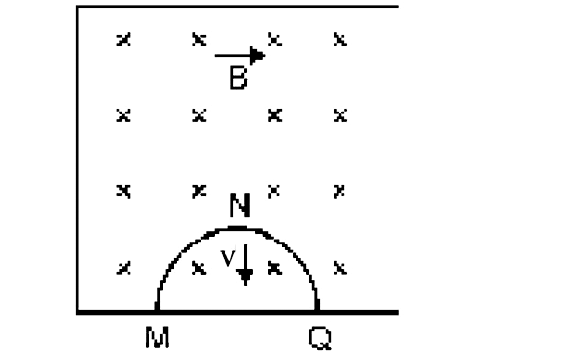
(a) zero
(b) BVπR2/2 and M is at higher potential
( c) πRBV and Q is at higher potential
(d) 2RBV and Q is at higher potential
The correct Answer is:D
Induced emf: B=(effective length)v=B2Rv
Topper's Solved these Questions
- ELECTROMAGNETIC INDUCTIONBOOK - CENGAGE PHYSICSCHAPTER - ELECTROMAGNETIC INDUCTIONEXERCISE - Archives Multiple Correct
3 Videos
- ELECTROMAGNETIC INDUCTIONBOOK - CENGAGE PHYSICSCHAPTER - ELECTROMAGNETIC INDUCTIONEXERCISE - Archives Asserton - Reasoning
1 Videos
- ELECTROMAGNETIC INDUCTIONBOOK - CENGAGE PHYSICSCHAPTER - ELECTROMAGNETIC INDUCTIONEXERCISE - Archives Fill In The Blanks
3 Videos
- ELECTROMAGENTIC INDUCTIONBOOK - CENGAGE PHYSICSCHAPTER - ELECTROMAGENTIC INDUCTIONEXERCISE - QUESTION BANK
40 Videos
- ELECTRON,PHONTS,PHOTOELECTRIC EFFECT & X-RAYSBOOK - CENGAGE PHYSICSCHAPTER - ELECTRON,PHONTS,PHOTOELECTRIC EFFECT & X-RAYSEXERCISE - dpp 3.3
15 Videos
Similar Questions
A thin semicircular conducting ring of radius R is falling with its plane vertical in a horizontal magnetic induction B. At the position MNQ shown in the fig, the speed of the ring is V. The potential difference developed across the semicircular ring is
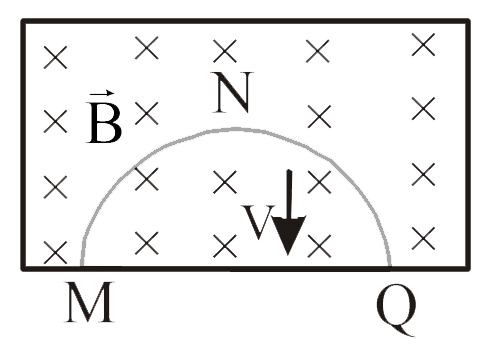
View SolutionA vertical conducting ring ogradius R falls vertically in a horizontal magnetic field of magnitude B. The direction of B is perpendicular to the plane of the ring. When the speed of the ring is v,
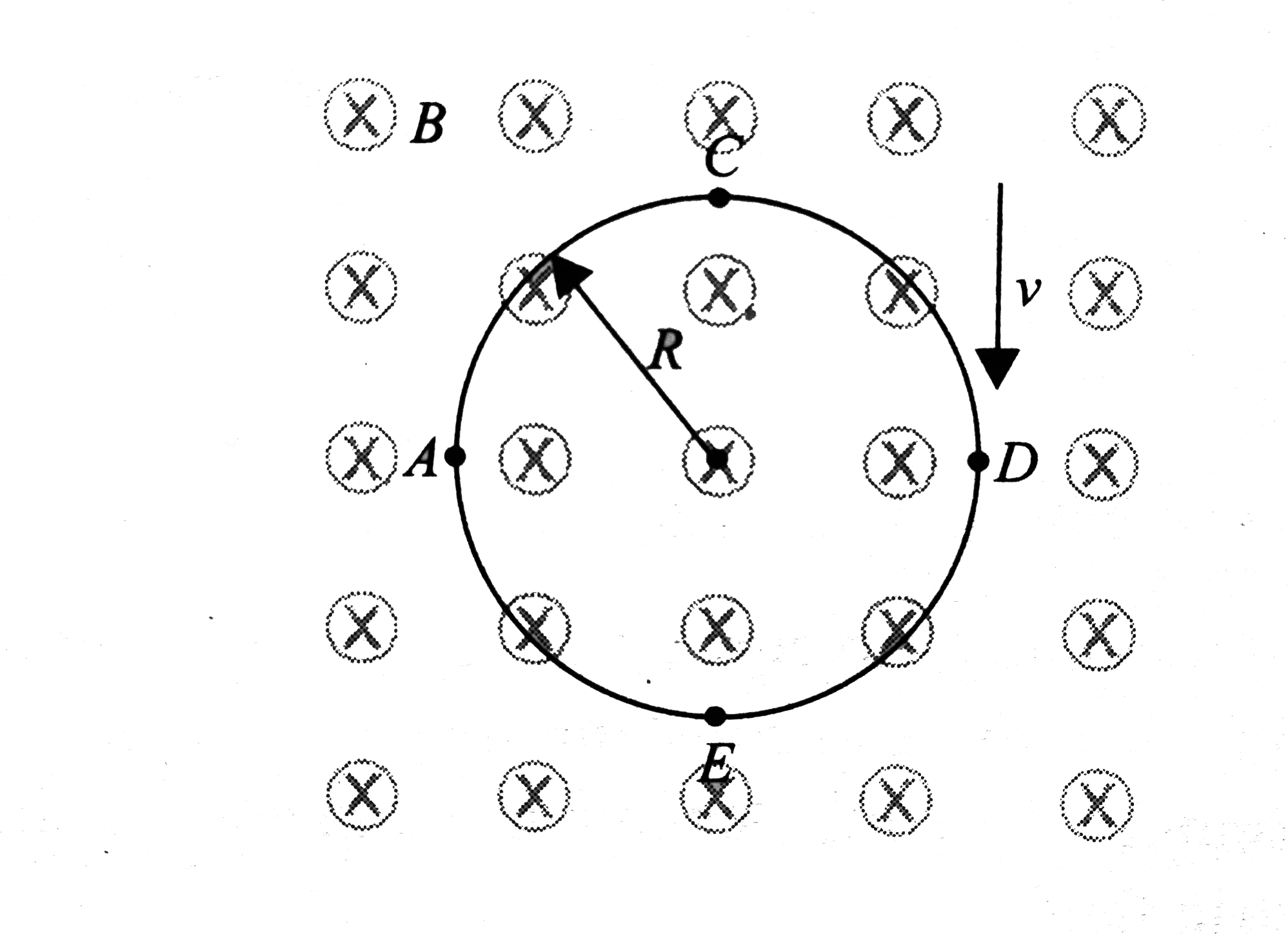
View Solution
Knowledge Check
A thin semicircular conducting ring of radius R is falling with its plane vertical in a horizontal magnetic induction B. At the position MNQ, the speed of the ring is V and the potential difference developed across the ring is
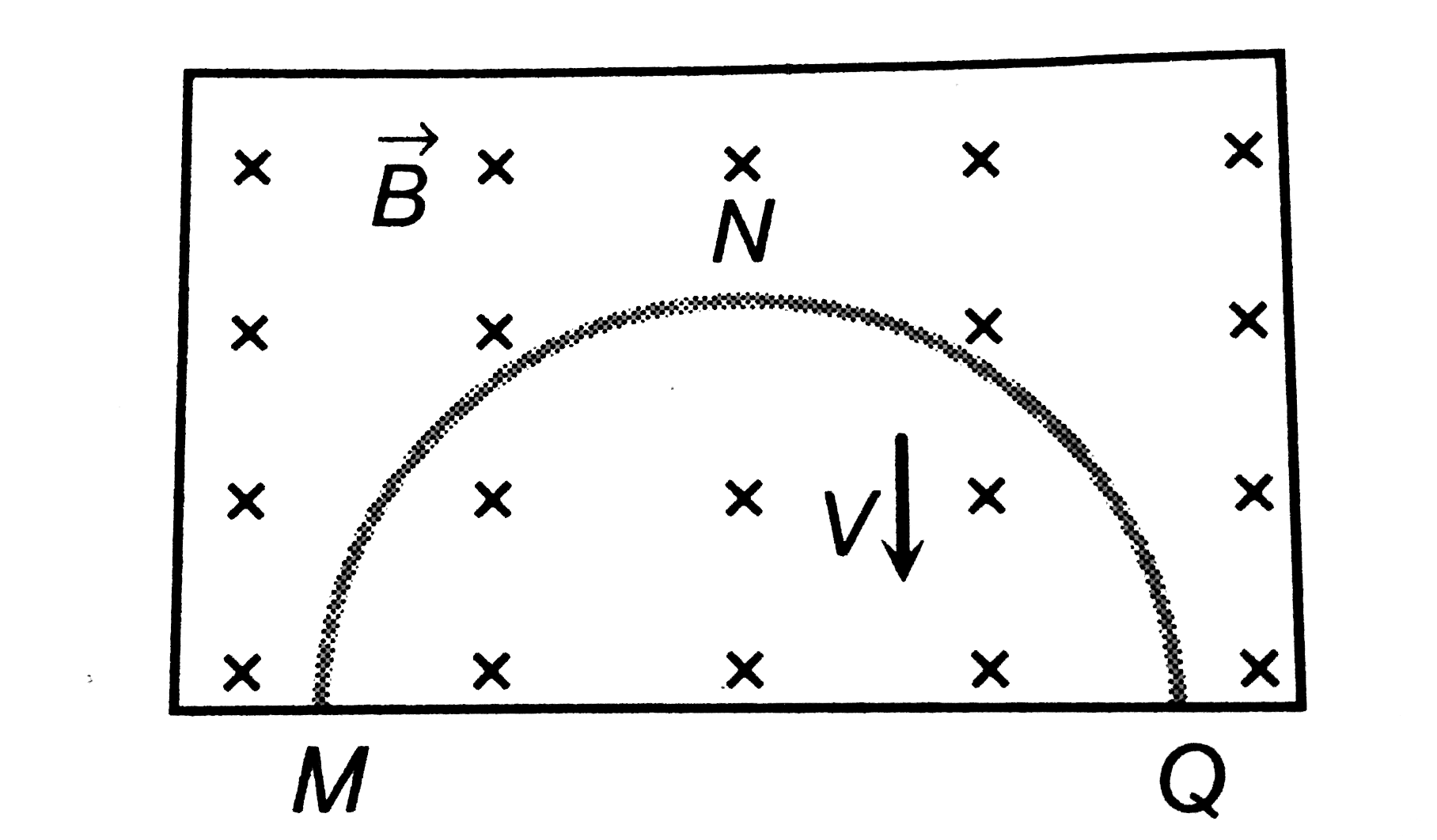 AZeroBBvπR2/2 and M is at higer potentialCπRBV and Q is at higer potentialD2RBV and Q is at higer potential
AZeroBBvπR2/2 and M is at higer potentialCπRBV and Q is at higer potentialD2RBV and Q is at higer potentialA thin circular -conducting ring having N turns of radius R is falling with its plane vertical in a horizontal magnetic field B . At the position MNQ the speed of ring is v the induced e.m.f developed across the ring is
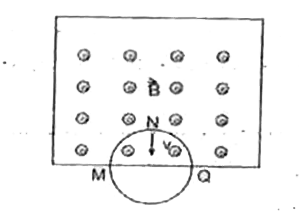 AZeroBBvπR2N2 and M is at higher potentialCNπ BRv and Q is at higher potentialD2RBvN and Q is at lower potential
AZeroBBvπR2N2 and M is at higher potentialCNπ BRv and Q is at higher potentialD2RBvN and Q is at lower potentialA thin semicircuilar conducting ring (PQR) of radius r is falling with its plane vertical in a horizontal magnetic field B, as shown in Fig. The potential difference developed across the ring when its speed is υ, is
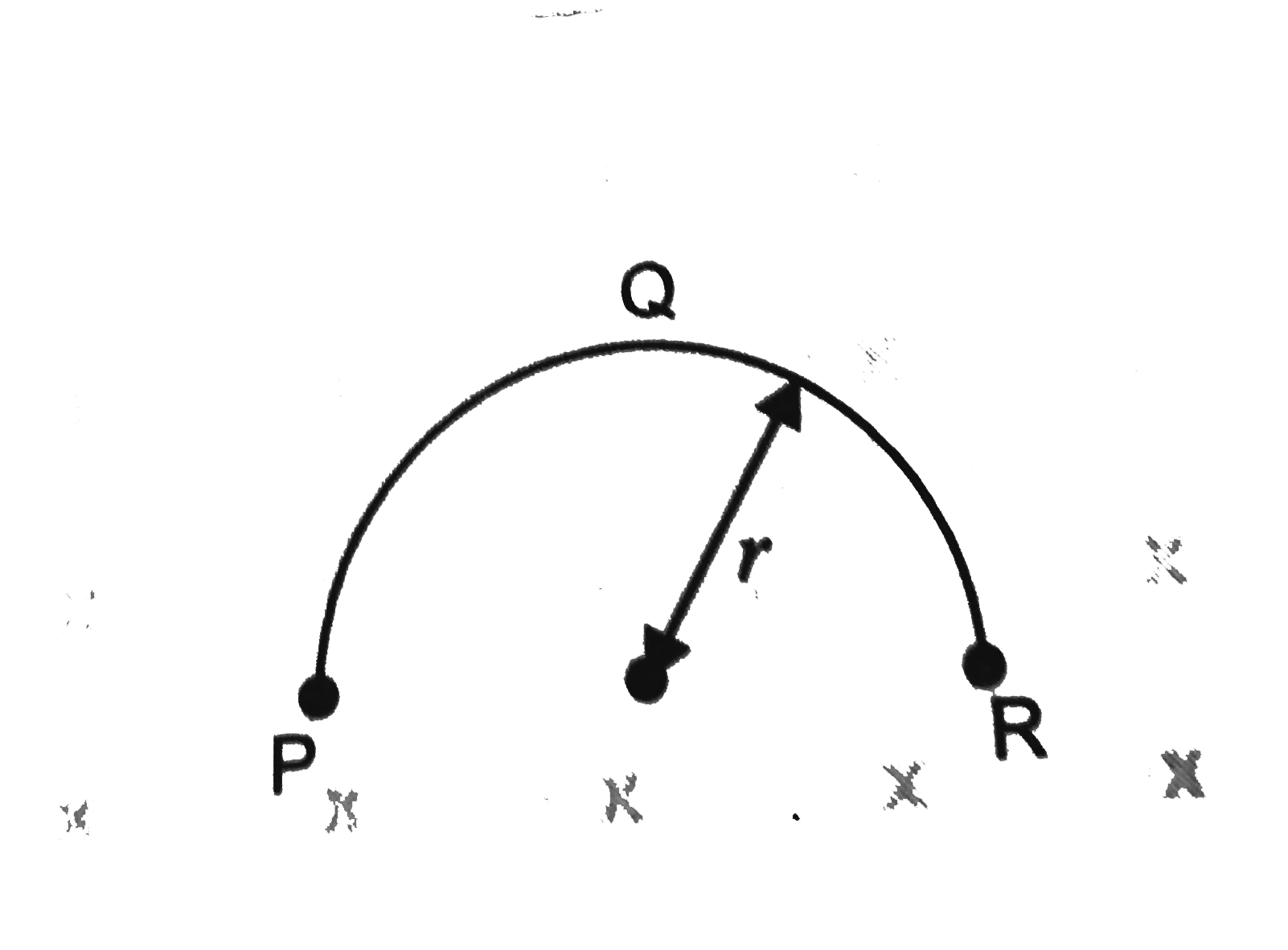 AzeroBBυπr2 and P is at higher potentialCπrBυ and R is at higher potentialD2rBυ and R is at higher potential
AzeroBBυπr2 and P is at higher potentialCπrBυ and R is at higher potentialD2rBυ and R is at higher potential
A vertical conduction ring of radius R falls vertically in a horizontal magnetic field of magnitude B with constant speed v . The direction of B is perpendicular to the plane of the ring. When the speed of the ring is v , (i) A and D are at different potential
(ii) A and D are at the same potential
(iii) C and E are at the same potential
(iv) The potential difference between A and D is 2BRv , with D a higher potential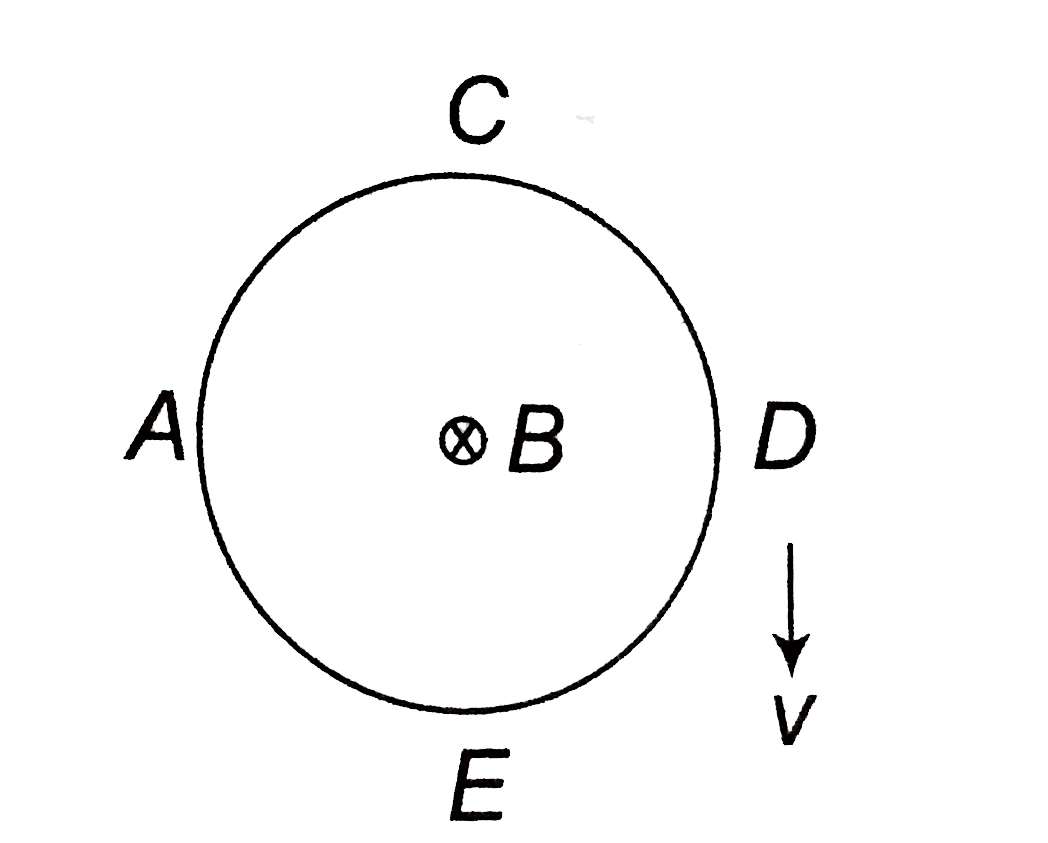
View SolutionA circular conducting ring is rotated about one its diameter in a magnetic field
View SolutionA vertical conducting ring of radius R falls vertically with a speed V in a horizontal uniform magnetic field B which is perpendicular to the plane of the ring. Which of the following statements is correct?
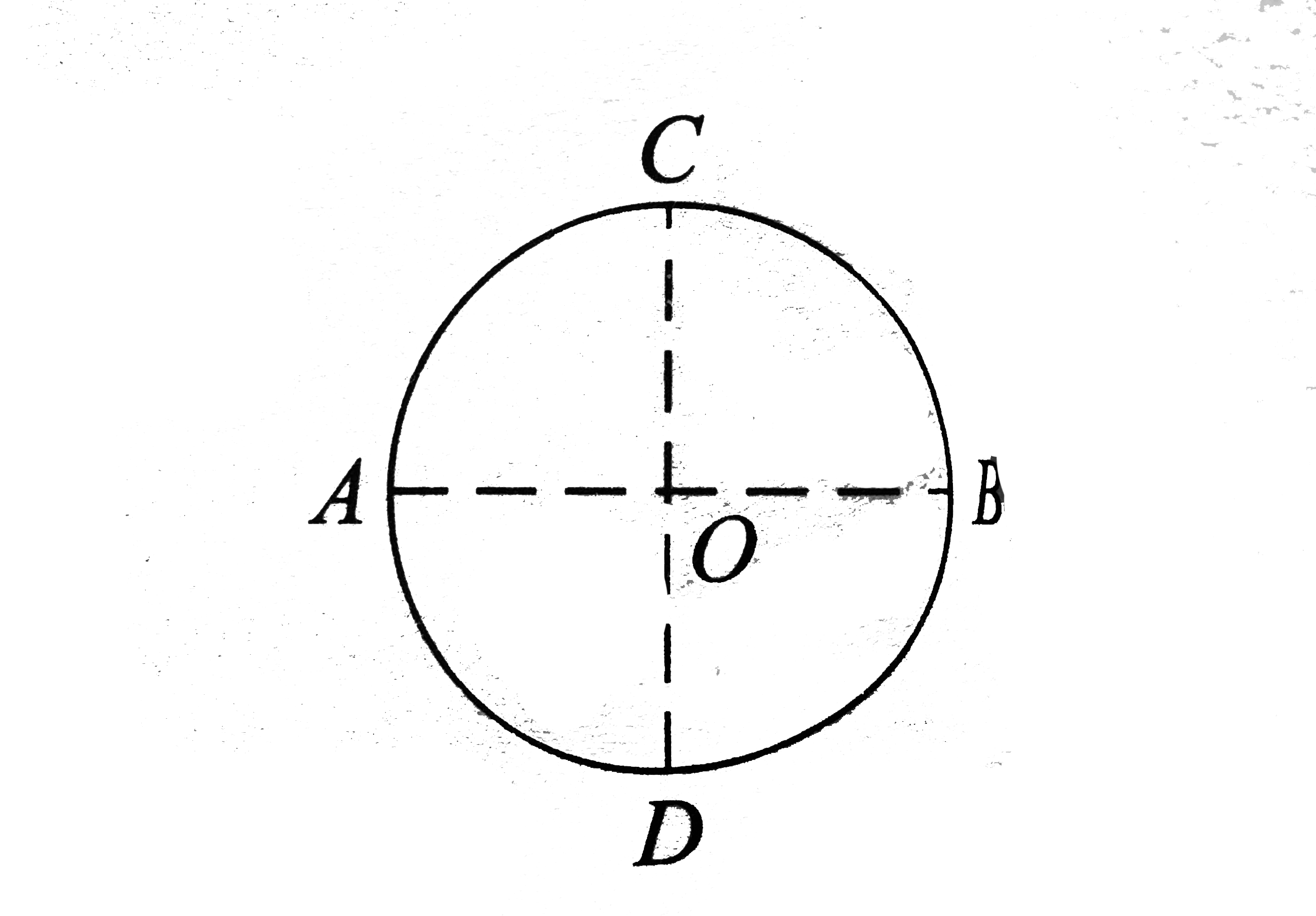
View Solution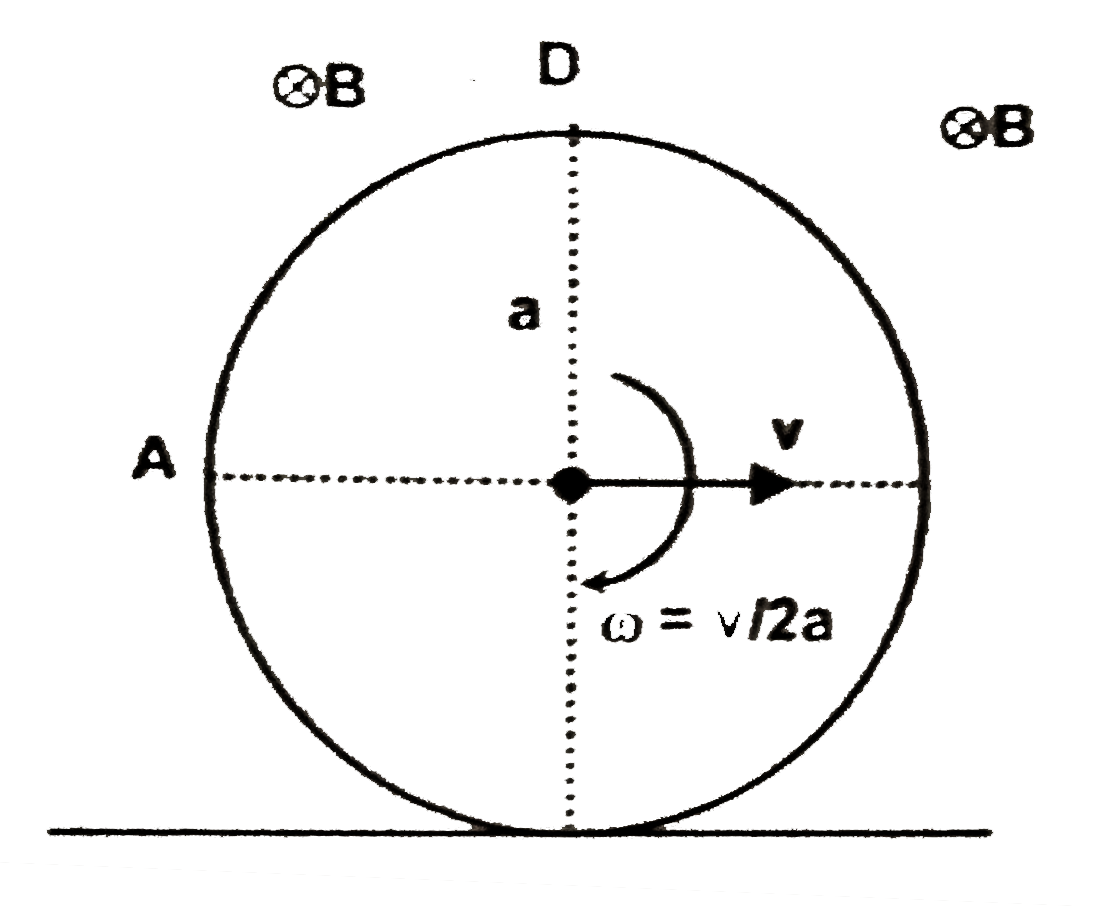
A circular conducting ring of radius 'a' is rolling with slipping on a horizontal surface as shown. A uniform magnetic field B is existing perpendicular to the plane of motion of the ring. The emf iniduced between the points A and D of the ring is
View SolutionA thin conducting ring of radius R is given a charge +Q. The electric field at the centre O of the ring due to the charge on the part ABCD of the ring is
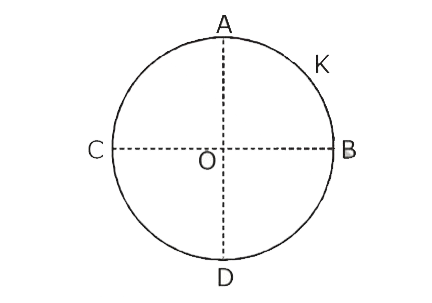
View Solution
